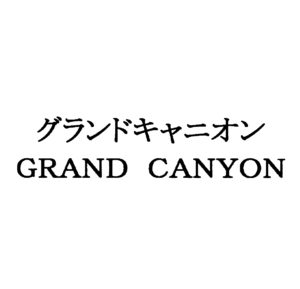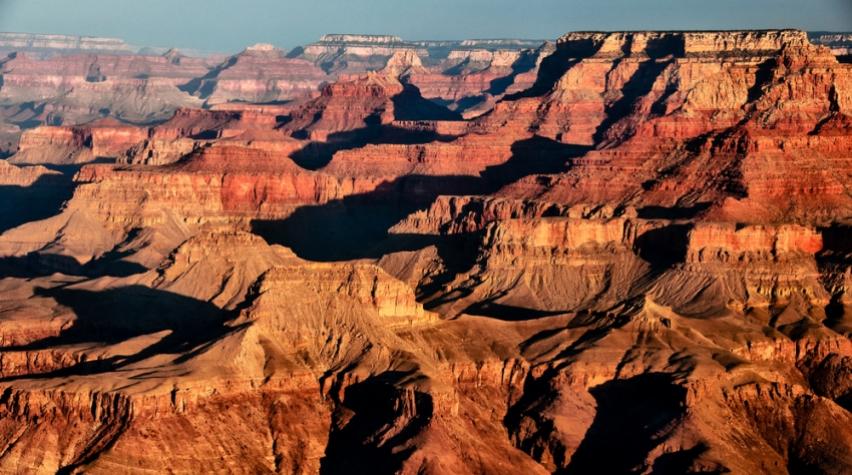In a recent appeal decision, the Japan Patent Office (JPO) upheld examiner’s refusal and decided to reject trademark “GRAND CANYON” in connection with clothing and shoes of class 25 due to lack of distinctiveness. [Appeal case no. 2017-16166]
GRAND CANYON
UNITIKA LTD., a Japanese textile company, applied for registration of word mark “GRAND CANYON” in relation to clothing, shoes and other goods of class 25 on September 26, 2016.

JPO examiner totally refused the application due to lack of distinctiveness based on Article 3(1)(iii) of the Trademark Law by stating that THE GRAND CANYON, a steep-sided canyon carved by the Colorado River in Arizona, one of America’s most famous and awe-inspiring natural attractions, recognized by UNESCO as a World Heritage Site, has been known for a famous tourist spot. Since relevant traders and consumers in Japan are familiar with circumstances that variety of souvenirs and gifts are on sale at tourist spot, presumably consumers will consider the applied mark just as a geographical indication in connection with the designated goods, not a source indicator.
Article 3(1)(iii)
Article 3(1) of the Trademark Law is a provision to prohibit descriptive marks from registering.
Section (iii) of the article aims to remove any mark merely or directly suggesting quality of goods and services.
“Article 3(1) Any trademark to be used in connection with goods or services pertaining to the business of an applicant may be registered, unless the trademark:
(iii) consists solely of a mark indicating, in a common manner, in the case of goods, the place of origin, place of sale, quality, raw materials, efficacy, intended purpose, quantity, shape (including shape of packages), price, the method or time of production or use, or, in the case of services, the location of provision, quality, articles to be used in such provision, efficacy, intended purpose, quantity, modes, price or method or time of provision;”
To dispute the refusal, UNITIKA filed an appeal on May 12, 2017.
UNITIKA argued “GRAND CANYON” shall be registrable in connection with clothing by citing several trademark registrations of the name granted by the JPO. In fact, UNITIKA is an owner of trademark registration for the same mark on goods of class 24 and 25 since 2005.
Appeal Board’s decision
The Appeal Board, however, upheld the examiner’s decision on the ground and dismissed UNITIKA’s allegation by stating that relevant consumers and traders at the sight of applied mark depicted on clothing shall conceive of a famous World Heritage Site in US.
Existing trademark registrations for the mark “GRAND CANYON” will not affect the decision since distinctiveness of trademark is variable as time goes by – with the lapse of time.
Criteria for Trademark Examination Guideline
Trademark Examination Guideline (TEG) pertinent to Article 3(1)(iii) provides that where a trademark is composed of a geographical name in foreign country or sightseeing area, the mark is deemed as “the place of origin” of goods or “the place of their sale”, provided that consumers or traders generally recognize that the designated goods will be produced or sold at the place indicated by the geographical name.
Trademark Examination Manual, 413.103.01 sets forth criteria to examine trademarks related to foreign geographical name.
In the cases of (a) the name of a capital, (b) the name of a state, (c) the name of a prefecture, (d) the name of a state capital, (e) the name of a province, (f) the name of the capital of a province, (g) the name of a county, (h) the name of the capital of a prefecture, (i) a former country name, (j) an old regional name, (k) the name of a district, (l) the name of a city, or special district, (m) the name of a busy downtown street, and (n) the name of a sightseeing area, even though these names may not be directly described in a dictionary or other documents/material as the place of origin, the place of sales (location of transaction) of the goods, or the location of provision of services (location of transaction), if a factor exists that establishes a connection between the goods and the name as the place of sales (location of transaction), or the location of the provision of services (location of transaction), in principle, the trademark will be refused on the grounds that it indicates the location where the goods are sold (location of transaction) or the location of provision of services (location of transaction)
 Masaki MIKAMI, Attorney at IP Law – Founder of MARKS IP LAW FIRM
Masaki MIKAMI, Attorney at IP Law – Founder of MARKS IP LAW FIRM

